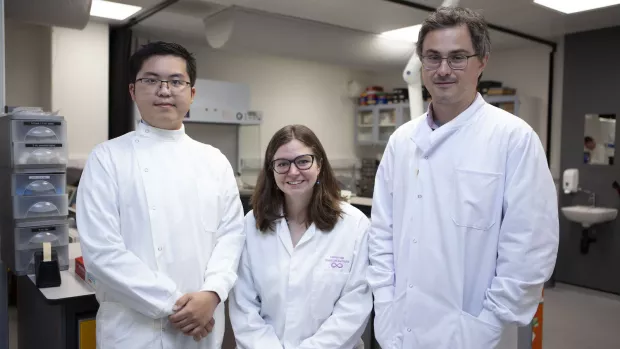
Common stomach bacteria can reduce MS symptoms in mice
Researchers have found that common gut bacteria can suppress MS symptoms in mice.
We already know that gut bacteria can change the severity of symptoms in mice with a condition like MS. Now researchers have shown that brain inflammation and myelin damage were significantly reduced by one particular bacterium, called P. histicola.
It’s a microbe commonly found in your mouth and throat as well as your gut, and has previously been shown to reduce arthritis in mice.
Gut instinct
The team in the US went further and studied changes in the immune system to understand how the bacteria might work.
They found that the bacteria affected the behaviour of important cells and how easy it was for them to get into the brain. This gives us more information about how bacteria could impact conditions like MS, and could open up new avenues for treatment development in the future.
Human experience
These results tie in with early research suggesting that people with MS had lower levels of this bacterium in their gut than those who don’t have MS.
Dr Sorrel Bickley, our Head of Biomedical Research, said: “There is growing evidence that gut microbes have an influence on the immune system and conditions like MS. We’re keen to see quality studies involving people with MS so we can really find out what effect gut bacteria can have.”
> Read the original research paper on the Cell Reports website


